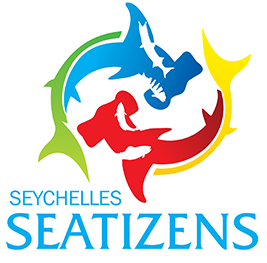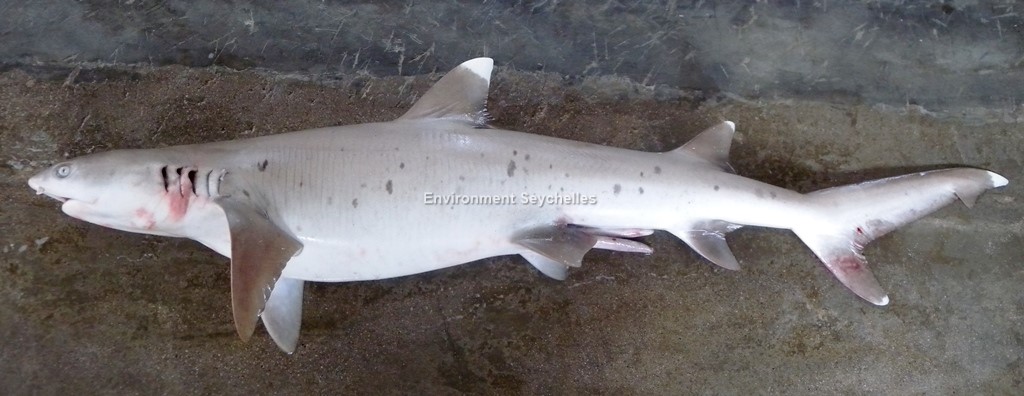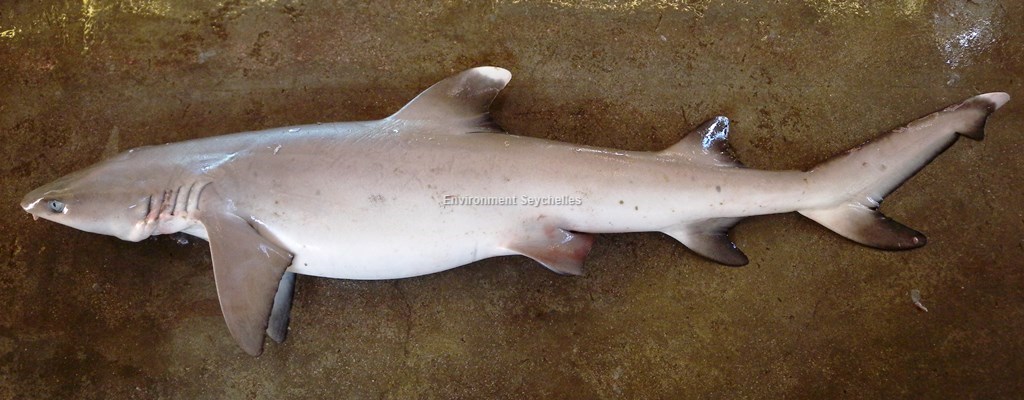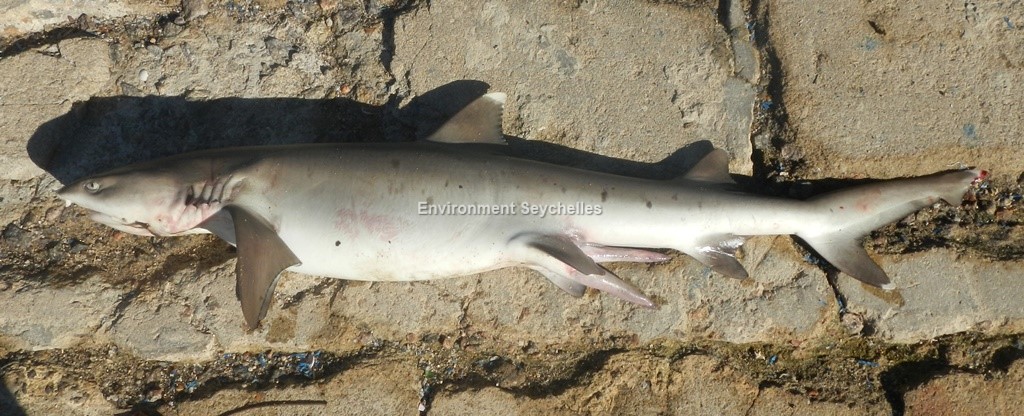Description:
Small, slim shark with very short, broad and bluntly rounded snout. Dark grey to brown grey dorsally fading to an off-white ventral surface, sometimes
with darker spots scattered on the flanks. First dorsal and upper caudal fin with conspicuous/brilliant white tips – the second dorsal may also have a
white tip.
Fins: D1 falcate with conspicuous/brilliant white tip. Origin well down the back far behind the free rear tips of the pectoral fins. D2 large, also may
exhibit conspicuous white tip. No interdorsal ridge. Pectorals broad and triangular, with origin between 4th and 5th gill slits, pale underside with
dusky tip. Pelvic fins proportionately quite large with pale underside displaying dusky tips and trailing posterior edge. Anal fin large – approximately
same size as D2 - with dusky tip and darker trailing edge. Caudal fin upper lobe with conspicuous/brilliant white tip and darker trailing edge, lower
lobe with dusky tip.
Head: Short, broad bluntly rounded snout, large horizontally oval eyes and large gill slits. Nostrils with large incurrent apertures and prominent
protruding anterior nasal flaps. Short upper labial furrows apparent and on superficial examination narrow needle-like teeth (in fact tricuspid) in
two rows.
Size:
Born 52-60 cm TL. Mature: Male approx. 104 -116 cm TL, Female approx. 105-122 cm TL, Maximum approx. 200 cm TL.
Habitat and Ecology:
Reef associated species occupying shelves and caves under ledges (depth 1-330 m, usually 8-40 m). Largely nocturnal. Feeds primarily on fish and invertebrates of the reef, known to sometimes feed in packs. Viviparous 1-5 pups per litter. Mature at around 5 years old.
Fishery Status:
This species is not protected. It is however illegal to fish for sharks with nets (Fisheries Act, Reg 16.c). It is caught by hand line and in the illegal
net fishery.
In Seychelles, T. obesus is by far the most commonly seen shark by divers on near shore reefs. It is only occasionally to be seen at the Victoria market however as, though quite regularly caught, artisanal fishers typically release it as it has low market value.
Notes:
References:
Ebert, D.A. et al. (2013). Sharks of the World – A fully illustrated guide. Wild Nature press ISBN 978-0-9573946-0-5
Fisheries Act 2014. Prohibition of net fishing of sharks, Reg. 16c of 1st August 1998. (Carried over from the 1986 Fisheries Act as per Fisheries Act 2014 para 79: Savings and Transitional provisions).
Froese, R. & D. Pauly. Eds. (2018). FishBase. https://www.fishbase.se/summary/907 (27/05/19).
Nevill, J.E.G. et al. (2015). An identification guide for the sharks of the Seychelles Artisanal Fishery.
Simpfendorfer, C.J. et al. (2020). Triaenodon obesus. The IUCN Red List 2020: https://dx.doi.org/10.2305/IUCN.UK.2020-3.RLTS.T39384A173436715.en. (28/09/21).
Citation:
Nevill, J.E.G. (2019). Triaenodon obesus, Whitetip reef shark. Seychelles Seatizens. www.seatizens.sc. https://seatizens.sc/species/triaenodon-obesus-ruppell-1837/ (Updated 11/02/24).




There are no comments